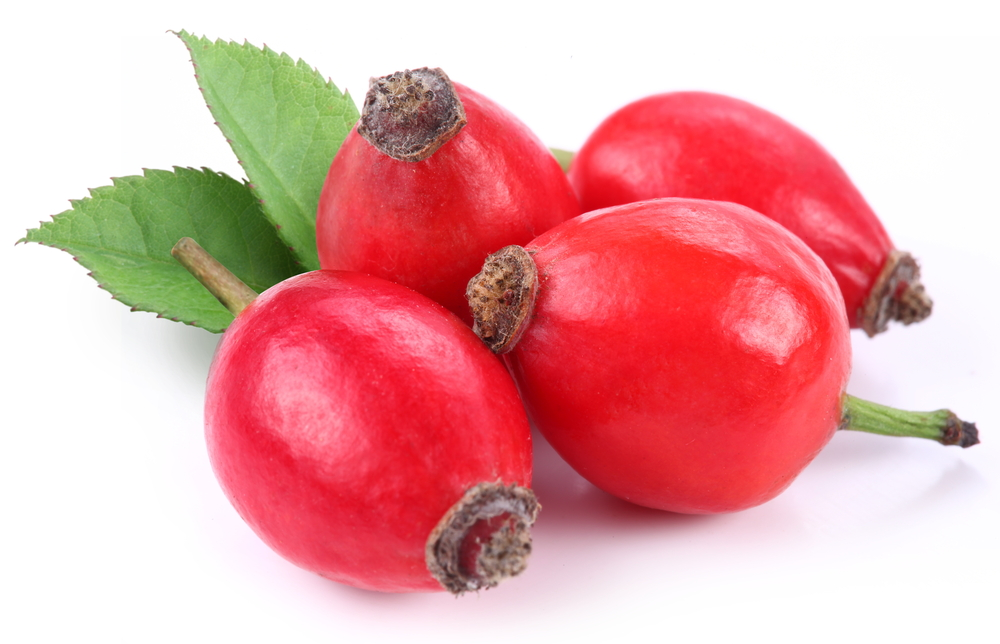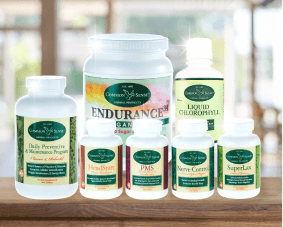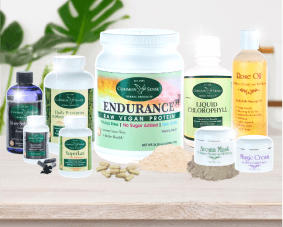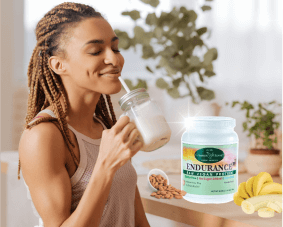
You've heard it before: the average American is overfed and undernourished. Depending on the survey, as many as 92% of us have at least one nutrient deficiency. Part of the problem, of course, is our reliance on packaged, processed foods, which have been stripped of any nutritional value. But even if you eat a 100% organic diet, you're still likely lacking in some key vitamins and minerals. That's where herbal vitamins come in.
Herbal Vitamins: 10 Best Natural Vitamin Sources
Unlike many commercially available vitamins and minerals, herbal supplements from Common Sense Herbs are free from common allergens, such as gluten and dairy. Our products are all-natural, non-GMO, and safe for children. We have something for everyone, including specific formulas to address men's health, women's health, endurance, longevity, immunity, and even fertility. That's because we use the best natural vitamin sources for our products, including the 10 listed here:
1. Rose Hips
Rose Hips pack more vitamin C than oranges. In fact, rose hips are thought to be one of the best sources of vitamin C in nature. Vitamin C is a powerful antioxidant that's important for optimal immune function, cardiovascular function, and skin healing. Vitamin C is water-soluble, which means we do not store it, and therefore it needs to be replenished throughout the day. Many Americans have vitamin C levels below what is needed for optimal health, but herbal vitamins can help correct these deficiencies and give the body what it needs to thrive.
2. Dandelion Root
Dandelion Root has been used by populations around the world for hundreds of years to treat gastrointestinal and liver issues. The benefits come from an array of nutrients, including vitamins A, C, E, and K, as well as folate, minerals, iron, and calcium. Research has shown that dandelion root extract can give the body the nutrients it needs to fight cancer, lower cholesterol levels, prevent liver damage, and destroy the bacteria that cause common forms of
3. Parsley
Parsley is a nutrient powerhouse. It's loaded with vitamins A, C, and K. It is also in the calcium, iron, and magnesium. The nutrients in parsley extract work together with our body's auto defense to slow the growth of cancer cells, lower the risk of diabetes, and break down kidney
4. Chlorophyll
Chlorophyll is what makes plants green. You can get chlorophyll by eating more spinach, collards, and other vegetables, but unfortunately, most Americans fall woefully short in that department. Chlorophyll is packed with vitamins A, C, E, and K. Some of these nutrients contribute to the ability of chlorophyll to strengthen red blood cells and help improve blood disorders such as anemia. Other studies have shown that chlorophyll can destroy carcinogenic compounds in certain foods once ingested, and additional research demonstrated that, when added to a weight loss
5. Goldenseal
Goldenseal contains calcium, iron, manganese, vitamin A, vitamin C, vitamin E, vitamin B-complex, as well as many trace minerals. has antiviral properties and has been shown in studies to help the body fight the common cold. This herb also stimulates the liver, helping it to break down waste and detoxify the body. A key compound in goldenseal is known to protect against bacteria yeast that causes urinary tract infections and gum disease. Other benefits may include lowering triglyceride levels and reduce blood sugar levels.
6. Irish Moss
Irish Moss is a type of seaweed with an impressive list of nutrients: protein, , bromine, beta-carotene, calcium, iron, magnesium, manganese, phosphorus, potassium, selenium, zinc, pectin, B-vitamins and vitamin C. Irish Moss has been shown to prevent plaque from accumulating in the arteries, may enhance bladder function, and strengthen the hair, skin, and nails.
7. Kelp
Kelp is the best natural source of iodine, which is essential to thyroid function. Roughly 35% of the population has an iodine deficiency
8. Cayenne
A type of hot pepper, cayenne has been used for generations in traditional Chinese and Indian medicine. contains disease-fighting antioxidants, such as vitamins A, C, and E, as well as beta carotene, choline, and lutein, among others. Research shows that cayenne extract can aid in weight loss, , cold symptoms, and allergies.
9. Ginger
You may be familiar with ginger as a remedy for nausea, but this herb has many other benefits thanks to a powerful compound known as gingerol. Research has shown that ginger can lower blood sugar levels, lower cholesterol levels as well as reduce pain and inflammation from exercise.
10. Garlic
Long-prized for its medicinal properties, garlic provides a dose of vitamin C, B6, and manganese. Beyond that, garlic has been shown to reduce the duration and severity of colds, balance blood pressure, balance triglycerides, and may even help improve memory.
Why Common Sense Herbs?
Our dedicated team has decades of experience helping people use herbal vitamins to achieve optimal health. We've been in the business since 1985, empowering our customers with the knowledge and resources they need to implement the right natural wellness strategies for their bodies. Our philosophy is simple and our commitment to our customers hasn't changed. Rooted in a sense of personal responsibility, our products are designed to cleanse and restore the body by working with our own biology. If you're new to herbal nutrition and you're not sure where to start, please let us help. Whether your goal is weight loss, immune support, or digestive health, herbal supplements can nourish each of the organs and systems of the body and serve as an investment in your long-term health. Our staff can suggest a foundational herbal wellness plan or customize a more targeted remedy to address a specific health concern. Visit us at Common Sense™ Productstoday to learn more.Credit:https://pubmed.ncbi.nlm.nih.gov/25185110/http://www.indianpediatrics.net/june2005/618. pdfhttps://www.liebertpub.com/doi/abs/10.1089/act.2010.16602?journalCode=act&https://www.researchgate.net/ publication/315718068_Oral_Capsaicin_Ingestion_A_Brief_Update_-_Dose_Tolerance_and_Side-Effects








